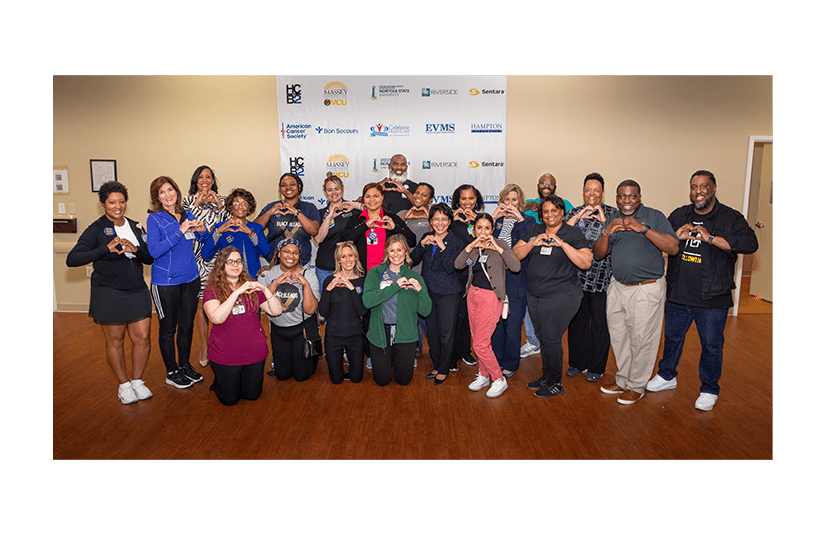As part of National Minority Health Month in April, Riverside Health, the Regional Cancer Disparities Collaborative, and Sentara partnered to host the 3rd Annual Health Equity Panel: “Let’s Get to the Bottom of Cancer.”
The American Cancer Society (ACS) reports that colorectal cancer ranks as the third most common cause of cancer-related deaths among men and the fourth among women in the United States. However, when combining data for both males and females, it becomes the second leading cause of cancer fatalities. ACS also reports that the rate of colorectal cancer diagnosis is increasing in adults under 55 years of age. Closer to home, the Hampton Roads community is considered a “hot spot” for colorectal cancer in the United States. Given its significant impact, the focus of this year's events was dedicated to colorectal cancer screening, emphasizing the critical need for increased awareness and proactive measures against this prevalent disease.
The 3rd Annual Health Equity Panel consisted of two events that were free and open to the community. The first event took place at Riverside Brentwood Medical Center in Newport News on Saturday, April 13 and the second, at First Baptist Church, Berkley in Norfolk on Saturday, April 20. Both events had interactive discussions about colorectal cancer awareness with a panel of physicians, individuals whose lives were touched by colorectal cancer, educational resources, healthy cooking demonstrations, music, food, and prizes. Eligible participants were also given free FIT kit tests to take home with them. These tests detect blood in the stool which can be a sign of pre-cancer.
“Our goal for these events was to increase awareness about colorectal cancer providing education, screening, and support for those who were able to attend,” says Linda McKee, Associate Vice President of Oncology at Riverside. “Over the years, we have seen a notable increase in colorectal cancer in our communities and especially for Black Americans who have the highest incidence and mortality rate for colorectal cancer than any other racial group compared to White Americans -- 20% more likely to receive a diagnosis of colorectal cancer and about 40% more likely to die from colorectal cancer.”
The events were successful with over 150 people in attendance of which 26 took home the free FIT kit test. For those who took the tests home, instructions came inside the kit, and once it is complete, it can be mailed back to the address on the box. Testing can take up to 12 to 14 days and the person is notified with the results.
"Education and early detection are critical to keeping our families and loved ones safe and healthy," said Iris Lundy, Sentara Vice President of Health Equity, and colon cancer survivor. "Sentara is grateful to participate in this collaborative effort between health systems, academic institutions, and community-based organizations to come together to increase awareness, break down barriers, and address disparities with colorectal cancer. We appreciate Pastor William Tyree for graciously allowing us to host this community event at the beautiful First Baptist Church, Berkley and for his commitment to this work."
Maxine McNair, a caregiver who shared her story during the panel discussions knows firsthand the importance of colorectal screening. “COVID took a lot of people,” Maxine shared. “But for my husband, it saved his life. With his COVID diagnosis, we learned that he had stage four colon cancer. Had we gotten the testing sooner, our outcome might be different.”
Riverside, Regional Cancer Disparities Collaborative, and Sentara are committed to ongoing colorectal cancer awareness, education, and screening to find cancer earlier when its most treatable. There are 100 free FIT kits remaining and will be distributed on a first come first serve basis to anyone in the community age 45-75 who would like to take the test. Just call 800-520-7006 if you would like a FIT kit.
To learn more about colorectal cancer and the importance of related screenings, visit riversideonline.com/colonscreening.
